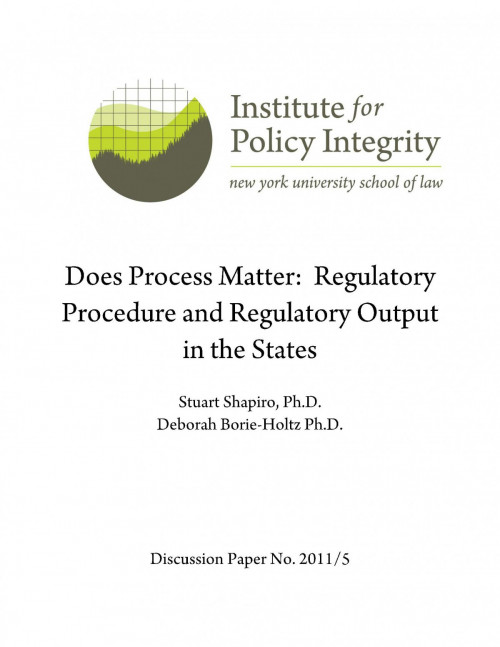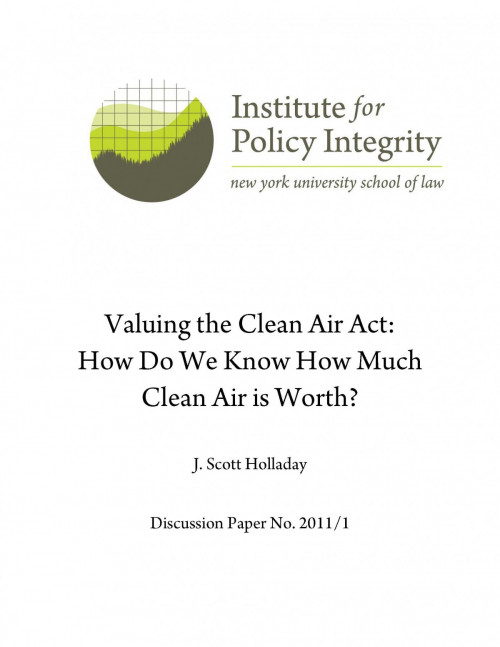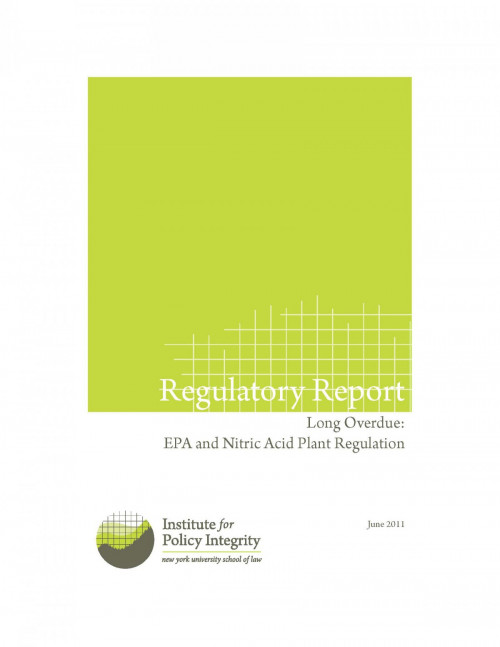The Institute for Policy Integrity produces a variety of publications. Our research reports develop in-depth research on our core issues, while our policy briefs and issue briefs provide focused analysis on more timely or particular topics. Our academic articles and working papers offer original scholarly research and analysis from established experts as well as fresh new voices.
Latest Publications
-

Does Process Matter
Regulatory Procedure and Regulatory Output in the States
Rulemaking in the states has become much more widespread than it was when many state legislatures began to pass their administrative procedures acts more than 40 years ago. A wide diversity of rulemaking procedures presents a natural laboratory in which to study several questions that have long interested scholars of the regulatory process. This paper finds that the level of rulemaking is more closely correlated to the lawmaking activity in the state rather than proceduralization which suggests no disrespect for the law, as Churchill argued, but rather that the lawmakers themselves have given rise to the thousands of regulations in the states.
-

Can Cost-Benefit Analysis of Environmental Policy Go Global?
The use of cost-benefit analysis of environmental policy is spreading from the United States, where it has the longest tradition, to other parts of the globe. This paper discusses the challenges posed for cost-benefit analysis as it spreads, and how it can evolve to meet those challenges.
-
_200_175_90.jpg)
Prevailing Academic View on Compliance Flexibility under Section 111 of the Clean Air Act
EPA will soon propose performance standards under Section 111 of the Clean Air Act for greenhouse gas pollution. Many argue that to be effective and efficient, the standards should incorporate compliance flexibility. This repport finds widespread agreement in the academic community that § 111 authorizes the use of many types of flexible approaches.
-

Valuing the Clean Air Act
How Do We Know How Much Clean Air is Worth?
EPA recently released a study evaluating the costs and benefits of amendments to the Clean Air Act between 1990 and 2020 to see what cleaner air means for human health and the economy. Holladay’s analysis of EPA’s numbers shows that they’re based on sound science.
-

Long Overdue: EPA and Nitric Acid Plant Regulation
Nitric acid plants emit dangerous air pollutants that cause illness and alter the climate. This report finds EPA long overdue on a regulatory revision and at risk of allowing major costs to be imposed on the American public.
